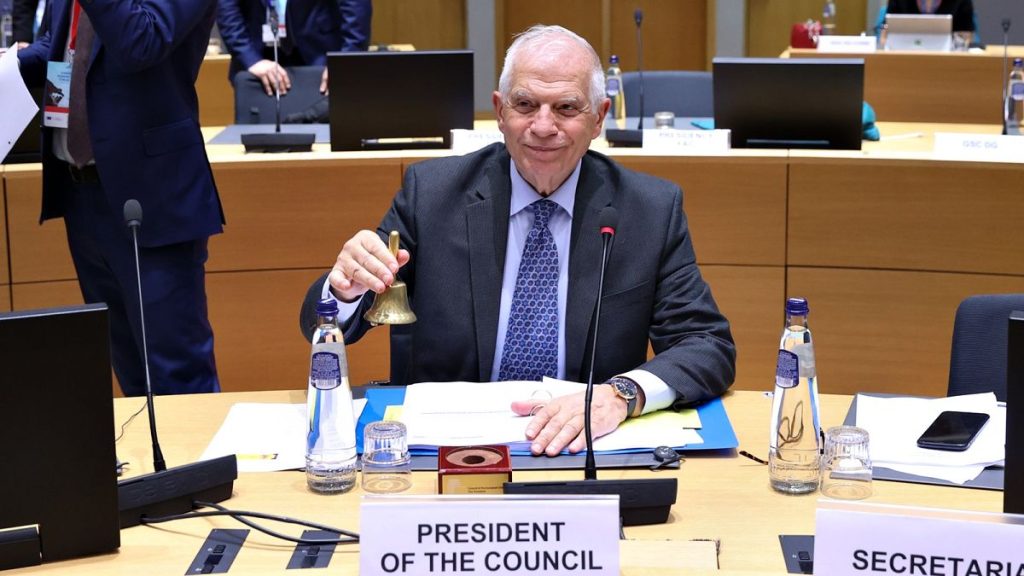After weeks of disagreement, the European Union has reached a “political agreement” to sanction extremist Israeli settlers, according to Josep Borrell. The breakthrough occurred during a meeting of the bloc’s foreign affairs ministers, where the issue was discussed to give diplomacy a chance. The sanctions, which have been in the works for months, were initially held up by a few countries, including Germany, the Czech Republic, and Austria. However, after the escalation of violence in the Gaza Strip and reports of violence against Palestinians, the talks gained urgency. The final roadblock was lifted by Hungary, leading to the political agreement being reached.
The sanctions on extremist settlers stem from their responsibility for violent acts against Palestinians in the West Bank, which are considered illegal under international law. The restrictions will include a travel ban and the freezing of assets owned in EU territory. The decision was carefully coordinated with fresh sanctions against Hamas, a group considered a terrorist organization by the EU. In reaction to attacks that killed over 1,100 civilians in Israel, the EU established a sanctions regime to target supporters of Hamas and the Palestinian Islamic Jihad. The sanctions will target individuals and organizations involved in these violent acts.
The humanitarian crisis in Gaza was highlighted by the Integrated Food Security Phase Classification (IPC) report, which showed that the entire population in the Gaza Strip is facing high levels of acute food insecurity, with famine imminent in some areas. The military conflict, scarcity of aid, and limited access to essential services have all contributed to the crisis. Josep Borrell described Gaza as the “greatest open-air graveyard” due to the high number of casualties and the disregard for humanitarian law. The deteriorating situation in Gaza prompted discussions about the future of the EU-Israel Association Agreement, with some member states calling for a review.
Borrell proposed a “political orientation debate” regarding the Association Agreement, which has been in force since 2000. While Spain and Ireland pushed for an urgent review of the agreement, other member states, including Germany, Italy, Austria, and the Czech Republic, expressed their opposition during the ministerial meeting. Borrell acknowledged that convening a formal Association Council with Israel would be complicated and lacked strong support. Instead, he suggested inviting Israel’s foreign affairs minister, Israel Katz, to the next meeting in Brussels. The invitation would also be extended to the new prime minister of the Palestinian Authority, Mohammad Mustafa.
Overall, the EU’s decision to sanction extremist Israeli settlers and its discussions about the future of the EU-Israel Association Agreement reflect the bloc’s commitment to addressing the ongoing humanitarian crisis in Gaza. The sanctions, intended to target individuals responsible for violence against Palestinians, are part of a broader effort to promote peace and stability in the region. However, the complexities of international diplomacy and differing opinions among member states highlight the challenges involved in finding a unified approach to the Israel-Palestine conflict. The EU’s diplomatic efforts may serve as a step towards a more comprehensive and sustainable solution to the longstanding issues in the region.


